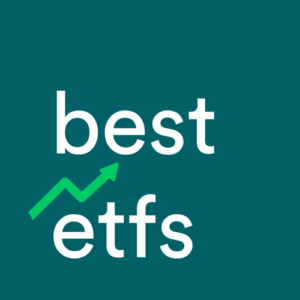In this short article, we’ll take a look at two top ETFs: Betashares Australia 200 ETF (ASX: A200) and Vanguard Australian Shares High Yield ETF (ASX: VHY).
What do the A200 and VHY ETFs do?
The Betashares A200 ETF provides exposure to the largest 200 Australian companies, based on market capitalisation. Unlike many other Australian shares ETFs, A200 uses the Solactive Australia 200 Index. This is virtually the same thing as the indices provided by S&P/ASX, as it also uses a market capitalisation weighting.
The Vanguard VHY ETF provides exposure to the largest dividend-paying Australian shares, based on market capitalisation and forecast dividend yield. It tracks the FTSE Australian High Dividend Yield Index. The index excludes real estate investment trusts (REITs) and caps the total exposure to any sector/industry at 40%.
If you like the look of the A200 ETF, check out our free A200 ETF report.
One of the easy ways we compare ETFs such as VHY and A200 at Best ETFs and Rask Austalia is by analysing the fees and costs of an ETF. Internally, we score ETFs based on management fees, plus indirect costs and we take into account the buy-sell spread. We like to look at the ‘all-in’ costs of buying and owning an ETF.
We’ll keep it basic and just study the fees. Based on our data for December 2020, the A200 ETF has a management expense ratio (MER) of 0.07% while the VHY ETF’s yearly fee was 0.25%.So A200 comes out on top. That said, a more useful metric to know is the fee quartiles that these ETFs find themselves in (note: quartile 1 is best). For example, any ETF which has a fee below 0.3% would be considered in our first (best) quartile.
Three-year return?
As Jerry Maguire said, ‘show me the money’. Keep in mind, performance isn’t everything — and past performance is not indicative of future performance. It’s just one part of a much bigger picture. The reason we say performance is not everything is because of volatility of financial markets and the economy from one year to the next. Some ETFs and funds can put in a positive return one year just to generate inferior returns the next time around. That’s why we prefer three-year or seven-year track records over one-year track records. It can smooth out the temporary performances caused by external factors. VHY achieved a three-year average annual total return of 6.22% as of December 2020 but the A200 ETF had not yet got to the three-year milestone. Again, keep in mind we will still consider shorter-term returns if we believe it is a high quality ETF. And as always, past performance is not indicative of future performance.
Finally, at Best ETFs Australia, we apply a rating to the ETF issuer or provider. That is, the company that starts and is responsible for operating the ETF on the ASX. There are too many considerations that go into our scoring to detail here. The issuer of A200 is Betashares. Betashares ranks highly for our scores of ETF providers and issuers in Australia. We believe BetaShares is one of the leading providers of index and non-index style products to retail investors in Australia.
Best ETFs Takeaway
Don’t forget our free reviews on ASX A200 and ASX VHY.
In summary, the VHY ETF ranks more positively against our internal scoring methodology but not by much compared to A200.
Please, keep in mind, there is much more to zeroing in on a good ETF. That’s why you should now use these skills to find the best ETF you can. If you want the name of our team’s top ETF pick for 2021, keep reading…




